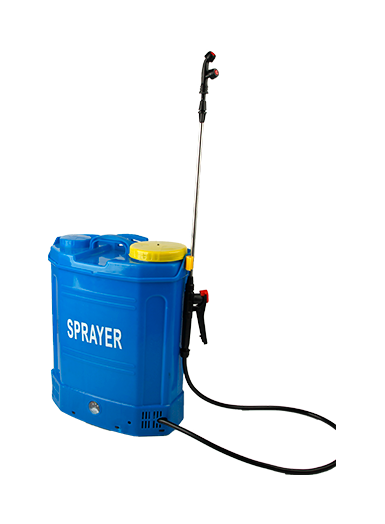It Is A Professional Sprayer Manufacturer Integrating Research, Design And Development.
+86-15824002009 Contact UsAs the world grapples with the challenges of climate change, food security, and sustainable development, the agricultural sector is at the forefront of innovation. One such innovation that is quietly revolutionizing the way we farm is the electric agricultural sprayer. These devices are not just a technological advancement; they are a testament to the potential of sustainable and efficient farming practices.
The Traditional Approach: Limitations and Risks
Traditional agricultural practices often rely on manual or mechanical spraying methods, which can be labor-intensive, time-consuming, and potentially hazardous. The use of fossil fuel-powered equipment contributes to greenhouse gas emissions, and the manual handling of chemicals poses health risks to farmers. Moreover, the uneven distribution of pesticides and fertilizers can bring about overuse, which in turn affects soil health and biodiversity.
The Emergence of Electric Agricultural Sprayers
Electric agricultural sprayers offer a solution to these issues. Powered by electricity, these devices are designed to provide precise and even application of agrochemicals, reducing waste and ensuring coverage. The transition from fossil fuels to electric power is not just about reducing emissions; it's about creating a healthier and more sustainable agricultural ecosystem.
Benefits of Electric Agricultural Sprayers
1. Environmental Impact: By eliminating the need for fossil fuels, electric sprayers significantly reduce greenhouse gas emissions, contributing to a cleaner environment.
2. Efficiency: Electric sprayers are often equipped with advanced technology that allows for precise control over the application rate, ensuring that the right amount of chemical is used, where it's needed, and when it's needed.
3. Safety: The automation of the spraying process reduces the need for farmers to handle hazardous chemicals directly, lowering the risk of exposure and potential health issues.
4. Cost-Effectiveness: While the initial investment in electric sprayers may be higher, the long-term savings in fuel and reduced chemical use can offset this cost. Additionally, the lower maintenance requirements of electric motors compared to combustion engines can bring about further savings.
5. Precision Agriculture: Integrating electric sprayers with GPS and other precision farming technologies allows for targeted application, which can be particularly beneficial for organic farming and integrated pest management strategies.
Applications of Electric Agricultural Sprayers
Electric agricultural sprayers are versatile and can be used in a variety of settings:
1. Crops: From row crops like corn and soybeans to orchards and vineyards, electric sprayers can be adapted to suit different crop types and field sizes.
2. Pest Control: For both large-scale commercial farming and small-scale gardening, electric sprayers can be used to apply targeted pest control solutions.
3. Fertilizer Application: The even distribution of fertilizers is crucial for plant health and yield. Electric sprayers can ensure that nutrients are applied uniformly, promoting balanced growth.
4. Weed Management: Selective application of herbicides can be achieved with electric sprayers, reducing the impact on non-target plants and the environment.
Challenges and the Path Forward
Despite the numerous advantages, the adoption of electric agricultural sprayers faces challenges. These include the initial cost of the equipment, the need for reliable power sources in rural areas, and the requirement for training and education to ensure proper use and maintenance. However, as technology advances and awareness grows, these barriers are gradually being addressed.

We will provide you with the latest product
information as soon as possible
